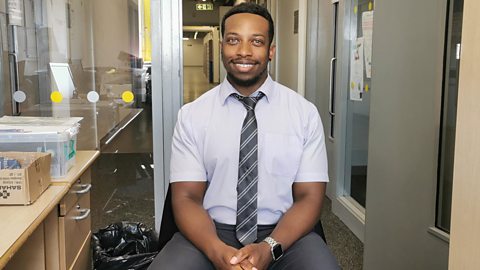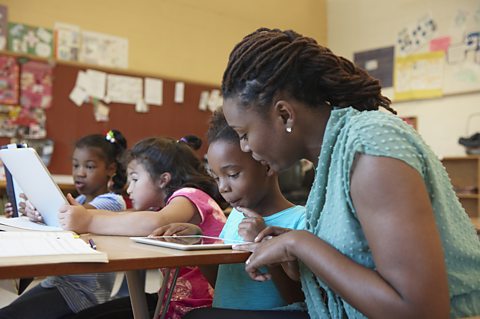
Black teachers and students are being held back by a society that needs to fully recognise the depth of the endemic social problems if any meaningful plans are to be made to resolve them within the education system.
Assistant headteacher Josiah Isles writes about his experiences within the education system as a black teacher in the UK.
Itâs a strange exercise to digest your own reality, explain how it might be different and present it to others to justify a claim for equality. As well as considering my reality as black man over the last few weeks, I have also asked myself, what does it mean to be a black teacher in the UK?
Letâs start with some questions:
Have I experienced prejudice from students and parents? Yes.
From colleagues? Surely not? Unfortunately, also yes.
Is overt prejudice the main problem I face? Definitely not.
Has my progress been limited in my career? Not on any obvious level, but how would I really know? Iâm due to start at a wonderful school as Assistant Headteacher in September, but what bias have I been exposed to and simply ignored in the past?
The role of unconscious bias
The issues that black teachers face in the education system are not obvious or clearly identifiable. A lack of accountability leads to denial. If I am not allowed the language to name my problem then how can I solve it? We teach our students that racism is not acceptable in a school, but we donât tackle the unconscious bias that leads to the embedded, systemic racism that students and teachers of colour face.
To clarify the point, letâs look at some numbers. I have worked at six schools. During my time as a teacher I have also built up significant networks of colleagues from other schools. Letâs say as a rough guesstimate that I have met 600 teachers in my professional network. Only 14 of these teachers are black. Only four hold positions of responsibility at middle leader level. At a senior leader level, I know only one other teacher from a black background.
Yet the support necessary for black teachers to succeed is not always evident, as the problems they face are not identified. Recruitment of black teachers does not happen by design or intent. National BAME networks are spread too thinly to be effective, especially when balanced with the challenges of a sector that is already in a recruitment crisis. Trainee teachers are not aware of support networks for black teachers. There is a âbubble of teachingâ. The bubble protects and supports teachers against direct racial prejudice, but lacks specific support with common micro-aggressions and the unconscious bias that undermines the system.
This is commonplace and can come from well-intentioned people: ââYou have such lovely eyes for a black person". ââWhere are you from?" "London." "No, I meant where are you really from?ââ The surprise that you can see on a parent's face when they ask for the head of department, and I arrive. The refusal to make eye contact during a parental meeting, with questions directed to a white, junior colleague instead. This ultimately contributes to the disproportionately low numbers of BAME teachers in leadership positions.
Professional life versus social life
We normalise the bias that black teachers face. This is because, when compared to life outside school, itâs a drop in the ocean. Working in education accounts for very few of the many incidents of racism I have encountered socially. There is a definite juxtaposition in my life between being a black teacher and being a black man in the UK.
As a teacher, despite the hidden problems, I receive a degree of respect for my position. This does not extend to my social life. My experiences of racial prejudice range from racist, verbal abuse to the subtle use of racial profiling. I have been pulled over in my car multiple times, even with my children in the back seat; followed around shops; refused entry to clubs; had to walk home as taxis refused to stop for me; itâs an on-going family joke that Daddy is a celebrity, thatâs why he always gets the random check at the airport. The list is extensive and exhausting.
My trust in the police has been eroded by unjustified stop and searches that are both uncomfortable to recall and to read. My exposure to racism as a child would require its own article. My experiences are not unique. However, the expectation is that on Monday morning, black teachers return to work on an even footing with white teachers, who are very often unaware of the lived reality of their BAME colleagues.
Importance of role models
Yet, I am a teacher because of, rather than in spite of, some of the prejudice I have faced. Having had few BAME role models in education as a child, I now seek to be one for other children. Each role model of mine made a massive impact on my self-belief and drive. I can only hope I can do the same for both other young, black men and all of my students, many of whom come from financially vulnerable households. For how can we expect social mobility for disadvantaged students when real life examples seem so far out of reach? The very real truth is that for the majority of students, their postcode still determines their likelihood of success in life. We have a very real problem. We need to tackle the underlying problems that cause the numbers of BAME teachers and leaders to be so low so that we can provide the role models that these students need. A diverse teacher workforce benefits all students not just those from a BAME background.
Need for an authentic black British history
Change starts with education. I am British, yet I was never taught any aspects of black history at school that reflected the role of the British empire in the history of people of colour. An embarrassment of the past has led to an ignorance in the present. How can we teach equality if the inequality in the past is not acknowledged? The superficial, surface-only approach to black history in the curriculum must change and be replaced with well-thought-out, meaningful education about our history so that a sense of identity can develop.
Call for a recognition of the social issues that hold back BAME teachers and students
This article is not to meant to elicit sympathy â itâs just a few words from a proud, unapologetically black teacher who loves teaching and helping young people of all backgrounds. Black teachers and students are being held back by a society that needs to fully recognise the depth of the endemic social problems if any meaningful plans are to be made to resolve them within the education system. We can and must do better so we can prove that black lives matter in British society.


Beyond Black History Month: Teaching black and diverse histories and experiences. video
In partnership with TES, Beyond Black History Month broadcast live on Wednesday 21 October, 2020. This panel discussion programme was an opportunity to share ideas and best practice around teaching black and diverse histories and experiences.

Online learning: Is it here to stay? document
How have schools around the country adapted to using online learning platforms during school closures?

Covid-19: Time for reflection? document
Headteacher, Darren Morgan, urges teachers to use this time of school closures to take stock and look after their own mental wellbeing.
